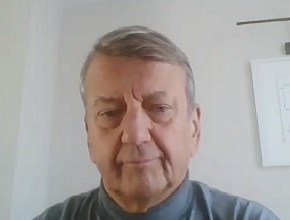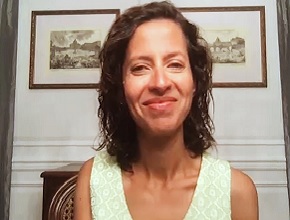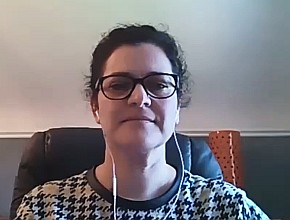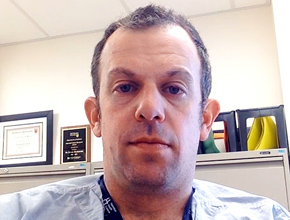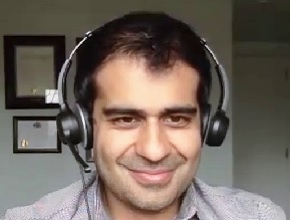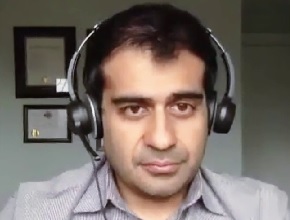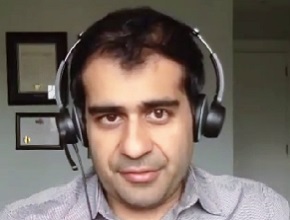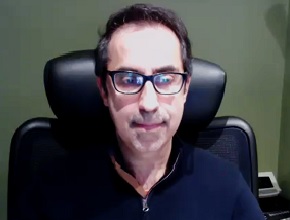Dr Bram Rochwerg, associate professor in the Division of Critical Care, lead author of the WHO/BMJ coronavirus disease 2019 (COVID-19) practice guidelines, and medical lead in the intensive care unit at the Juravinski Hospital, connects with Dr Roman Jaeschke to discuss the most recent WHO recommendations about remdesivir use.
References
Update to living WHO guideline on drugs for covid-19. BMJ. 2020 Nov 19;371:m4475. doi: 10.1136/bmj.m4475. PMID: 33214213.Siemieniuk RA, Bartoszko JJ, Ge L, et al. Drug treatments for covid-19: living systematic review and network meta-analysis. BMJ. 2020 Jul 30;370:m2980. doi: 10.1136/bmj.m2980. Update in: BMJ. 2020 Sep 11;370:m3536. PMID: 32732190; PMCID: PMC7390912.
Roman Jaeschke, MD, MSc: Good morning. Welcome to another edition of McMaster Perspective. It’s my pleasure to reintroduce Prof Bram Rochwerg from McMaster University, who is the lead author of the most recent World Health Organization (WHO)/British Medical Journal (BMJ) practice guidelines on coronavirus disease 2019 (COVID-19) treatment with remdesivir.
Dr Rochwerg, first question: could you tell us a little bit about the concept of those living guidelines supervised, or requested, by the WHO?
Bram Rochwerg, MD, MSc: Of course. Thanks for having me.
This living guideline represents a collaboration between the WHO, MAGIC (Making GRADE the Irresistible Choice)—a group of epidemiologists, a lot of them McMaster trained, although there’s an international representation at this point—and the BMJ. The idea is to rapidly respond to practice-changing evidence, similar to the BMJ Rapid Recommendations series that preceded this. It was published as official WHO guidance. This is now the second iteration that we’re discussing, with plans for further iterations to come.
Roman Jaeschke: Which drugs are you looking at? Which interventions?
Bram Rochwerg: All drugs are being assessed. There’s actually a living network meta-analysis that’s being led by Reed Siemieniuk, who’s based at McMaster. This living network meta-analysis incorporates all the drugs and all the randomized controlled trials that have been published to date in COVID-19. Especially when there’s one big practice-changing study that gets published, in discussion with the WHO we decide to address these specific interventions.
This most recent one was precipitated by the publication of the SOLIDARITY trial, which you may have seen. It’s the WHO-led randomized controlled trial. It hasn’t been published. I’ve heard it’s been accepted at the New England Journal of Medicine (NEJM) but it’s yet to be published, although it was posted about 3 weeks ago now as a preprint. It addressed the drugs of remdesivir, lopinavir/ritonavir, hydroxychloroquine, and interferon. So for now this re-evaluation of remdesivir was in response to a SOLIDARITY publication.
The first iteration of the living guideline looked at corticosteroids. That’s already been published, back in September. This most recent publication was remdesivir.
Roman Jaeschke: Remind us: what did you recommend for corticosteroids?
Bram Rochwerg: The first iteration was led by a colleague François Lamontagne, again, under the auspices of the WHO, and made a strong recommendation for corticosteroids in those with severe or critical COVID-19. A layperson translation of those severity criteria would be anybody on oxygen, including mechanical ventilation but also just nasal cannula. And [it made] a weak recommendation, or conditional recommendation, against corticosteroids for those that are nonsevere, ie, not requiring oxygen.
Roman Jaeschke: Could you for my interest tell me the role of the WHO? Is it approval? Or is it part of the process?
Bram Rochwerg: These guidelines are completely WHO guidelines. We’re providing consultation and input on guideline development but it is completely run by the therapeutics division of the WHO. It is a collaboration, but these are official WHO guidelines.
Roman Jaeschke: Let’s go now to your remdesivir guidelines. How could you summarize them for our listeners?
Bram Rochwerg: We had a lot of interesting and comprehensive debates around the topic of remdesivir amongst the panel, which included patient partners, and in the long run ended up with a conditional, or weak, recommendation against remdesivir.
We considered a number of different elements, including subgroups around severity of illness, and you may have seen some of this discussed in academic circles insomuch that when you looked at subgroup analyses, especially by severity of illness, overall there is no effect of remdesivir on outcomes like mortality and need for mechanical ventilation. However, when you carve this up, it looked like maybe there is a signal for harm in the critically ill and maybe a signal for benefit in those that were severely ill and nonseverely ill. However, again, we carefully evaluated this with statistical analyses, including metaregression and complicated Bayesian techniques, and we applied credibility assessment tools to look at how credible this subgroup of findings was. Based on low credibility of the subgroup finding and low-certainty evidence overall, the panel decided not to make subgroup recommendations. As such, this conditional recommendation against remdesivir applies across severities of illness.
Roman Jaeschke: Is there a concept of why it should not work towards the most severe cases and maybe work in either less severe or earlier phases of the disease?
Bram Rochwerg: I was telling you before we actually had this unique opportunity to spend a session as part of the WHO guidelines with the trial investigators, the major trials being ACTT-1 (Adaptive COVID-19 Treatment Trial), RECOVERY, SOLIDARITY. We had a sit down session with them and we asked them about their hypothesis for remdesivir and in what stage it might work best. Earlier on in the pandemic, when these trials were crafted, it was thought that perhaps giving these drugs like remdesivir to the sickest of patients might be the most beneficial time. This hypothesis is contradictory to what we actually saw, where maybe if there’s any population that benefits, it might be the less severely ill.
I think what we’ve learned over the pandemic is that if there is a role for antivirals, which we don’t think that there is right now for remdesivir, maybe it actually is earlier on in the disease course, when viral replication is highest. Later on it’s the inflammatory reaction that’s mostly driving things. Again, we carefully evaluated this and at least amongst our panel we felt that the conditional recommendation against, given those caveats that I mentioned, should apply to everyone, no matter the severity of illness.
Roman Jaeschke: The conditional recommendation still means that some people or organizations may end up deciding differently. What would we need to do at this stage to clarify this further?
Bram Rochwerg: You’re a guideline methodologist yourself, Roman, and I learned what I know from you. So you know that the implications of a conditional recommendation mean that most well-informed patients would choose not to receive remdesivir, given understanding of the literature, but it recognizes that some still would choose to get it.
We made explicit guidance within the guideline that we think clinical trials should continue. There’s still this uncertainty around perhaps the less severe group, so I think that continuing to enroll this less severe noncritical group would be reasonable. I think there’s a lot of uncertainty around time course and timing of administration of remdesivir in terms of earlier on. There’s some uncertainty around concomitant administration with other agents, like corticosteroids, and it’s possible that there’s a synergistic effect.
So there is ongoing uncertainty and I think it’s reasonable to continue to use remdesivir in the setting of a clinical trial. I would advocate, based on the results of this, outside of a clinical trial it’s probably seldom going to be used or should be used. In Canada, I think this is how remdesivir is used right now, predominantly within clinical trials. But the implications of this guideline worldwide are a lot more profound. As you may know, in the United States and in many countries in Europe at this time, or at least preceding this recommendation, every single hospitalized patient was being administered remdesivir, so the impact of this guideline [I think would] be big.
Roman Jaeschke: If they have it. If they had the drug. But I remember talking in May about every patient getting hydroxychloroquine as well—not that they are necessarily equated.
It is all very interesting. Maybe the last question, because we were chatting about it: the cost issue with those therapies. A lot of therapies, for diabetes and heart failure and not mentioning all the biologics, are getting quite expensive. Where does cost fit in this WHO model in which you operate now?
Bram Rochwerg: There’s no doubt that remdesivir is pricey. I’ve seen estimates around US $4000 per treatment course. However, we discussed it as a panel, and the panel had representation from many low-middle income countries across the world. The sense that we got from stakeholders was that even if the drug was costly, if it worked, there would be engagement and want to acquire this drug for administration to their population.
Actually, in totality the cost considerations here weren’t as strong as you would think. Rather, I think the things that drove the conditional recommendation against were no evidence of benefits in the major outcomes of interest and not so much the financial cost but also opportunity costs of focusing attention and resources on a drug that’s not leading to benefit where those resources and attention should probably be spent on things that we do know work, like good supportive therapy and corticosteroids, at least for the severe and critically ill.
Roman Jaeschke: Dr Rochwerg, it’s great. I really appreciate it and I believe as you keep progressing with your guidelines, we may meet again. I hope for this.
Bram Rochwerg: Further drugs to come soon. Thanks for the opportunity today. My pleasure.
Roman Jaeschke: Thank you.
 English
English
 Español
Español
 українська
українська

